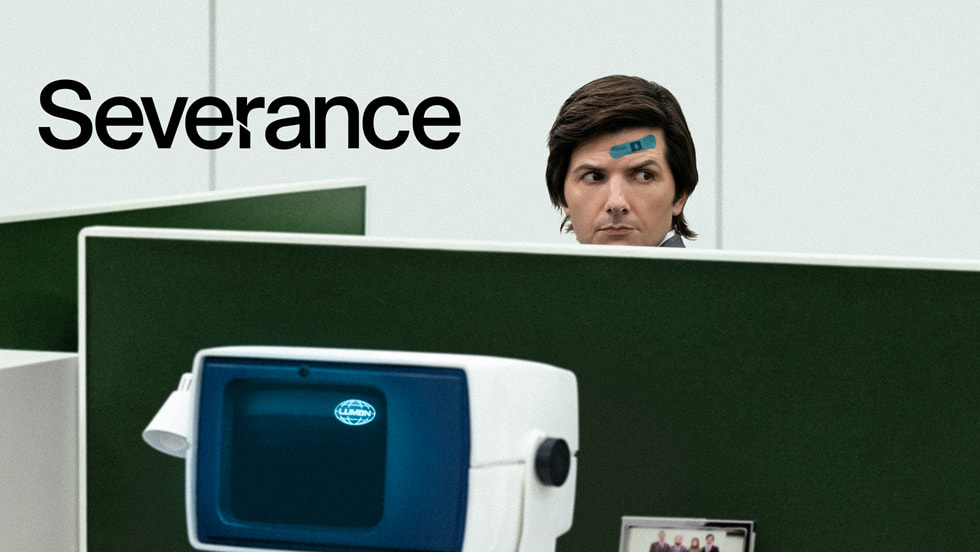AI and social justice are increasingly becoming central themes in discussions about the future of humanity. With the rise of AI technology, we must examine its role in social justice movements to ensure it serves all citizens equitably. Renowned sociologist Ruha Benjamin argues that while AI is often touted as an impartial solution driven by algorithms, it can perpetuate systemic inequalities, particularly against marginalized groups. Benjamin’s insights illuminate the need for ethical AI frameworks that prioritize human welfare over corporate interests. As we envision a fairer society, it is crucial that we engage in conversations about how AI can be harnessed to foster inclusivity and justice, challenging the narratives propagated by tech elites.
The intersection of artificial intelligence and equity is gaining traction as an essential area of inquiry in today’s digital age. Scholars like Ruha Benjamin encourage us to rethink how intelligent systems impact social fairness and the dynamics of power in our communities. As we explore the implications of advanced computing on human interactions and societal structures, it becomes vital to discuss alternative approaches that prioritize compassion and understanding. These dialogues serve not only to critique existing systems but also to innovate future technologies that uphold justice for all. In this evolving landscape, the call for ethical AI practices becomes more urgent, reminding us that technology should uplift rather than undermine societal values.
The Interplay of AI Technology and Social Justice Movements
AI technology has become an indispensable part of modern life, contributing significantly to various sectors, from healthcare to finance. However, its integration raises significant concerns regarding social justice. As Ruha Benjamin emphasizes, the narrative around AI is often skewed by the self-interest of its elite proponents who may prioritize efficiency over equity. This is particularly troublesome given that marginalized communities are frequently disproportionately affected by the unjust applications of these technologies. The intersection of AI and social justice movements illuminates the necessity for responsible and ethical AI development that prioritizes equity and inclusion.
Social justice movements aim to advocate for systemic change, and the role of AI cannot be overlooked in this context. By harnessing AI technology, these movements can amplify their reach and effectiveness. For instance, data-driven approaches can help identify systemic inequalities, while AI tools can facilitate better advocacy strategies. Nevertheless, as Ruha Benjamin asserts, it’s crucial to ensure that the deployment of AI within these contexts does not replicate existing biases or create new forms of oppression. Fostering a dialogue between technologists and social justice advocates can lead to a more equitable future for all.
Ethical AI: A Moral Imperative for the Future of Humanity
The ethical considerations of AI technology are at the forefront of discussions about the future of humanity. Ruha Benjamin warns against viewing AI solely as a neutral entity, arguing instead for a framework that integrates moral dimensions into its development. Ethical AI must consider the societal implications of algorithmic decisions, especially when it comes to vulnerable populations. This re-evaluation is essential to ensure that the advancements in AI do not come at the cost of human rights and welfare.
As we stride toward a future heavily influenced by AI, embracing ethical practices becomes a moral imperative. It’s not merely about implementing regulations but fostering a culture of responsibility among developers and users alike. Ruha Benjamin calls for a comprehensive understanding of history and society to inform AI design, reiterating that without addressing the social context in which these technologies operate, we risk perpetuating cycles of oppression. The challenge lies in creating AI systems that not only advance technological progress but also uphold the principles of justice and dignity.
Ruha Benjamin’s Vision for a Radically Different Future
Ruha Benjamin advocates for a radical reimagining of our technological landscape, where creativity and critical thought shape the future. She posits that envisioning a world that transcends current limitations—beyond borders and surveillance—is essential for fostering innovation that serves the collective good. This perspective encourages us to challenge conventional boundaries and rethink how we approach technology and its societal role. Rather than merely striving to make existing systems less harmful, we should aim for transformative change that aligns with the principles of social justice.
The call to action presented by Benjamin invites us to re-evaluate the narratives surrounding AI and its potential. By advocating for a blend of technical knowledge with insights from the arts and humanities, she emphasizes the need for a multidisciplinary approach to problem-solving. This is particularly relevant as we consider the ethical implications and future trajectories of AI technologies. By inviting diverse voices to the table, we can create a more inclusive dialogue that fosters real progress toward a more equitable future.
The Limitations of AI in Addressing Social Inequalities
While AI technology has been heralded as a solution to many societal issues, it often falls short of addressing the root causes of social inequalities. Ruha Benjamin highlights significant concerns, pointing out that systems like facial recognition have been used unjustly, leading to misidentifications and reinforcing the very biases they were meant to combat. This illustrates a crucial limitation of AI: without a thorough understanding of societal complexities, these technologies can inadvertently perpetuate harm rather than provide relief.
Moreover, as AI systems increasingly influence critical areas such as healthcare and criminal justice, the stakes are higher than ever. Vulnerable populations are often left out of the conversation, resulting in a technology gap that exacerbates existing social disparities. Benjamin’s insights encourage us to be vigilant in recognizing these limitations and to advocate for AI implementations that prioritize understanding communities’ unique challenges and needs, ensuring that progress does not come at their expense.
Envisioning a Future of Creativity and Imagination
Ruha Benjamin’s emphasis on creativity highlights a critical aspect often neglected in discussions about AI technology—the importance of imagination in shaping a better future for humanity. She urges listeners to rethink the way we conceive technological advancements, advocating for a shift from merely improving existing systems to completely reimagining them. This imaginative approach can lead to innovative solutions that radically alter our relationship with technology and foster a society rooted in equity and justice.
By prioritizing creativity within the discourse surrounding AI, we open the door to a multitude of possibilities that challenge the status quo. As Benjamin suggests, questioning the practicality of social goods like affordable housing and free public transportation instead of embracing extravagant tech solutions reflects a fundamental misalignment in values. Engaging with the arts and humanities can unlock new modes of thinking, enabling us to envision a world that truly prioritizes human well-being over technological advancement.
The Role of Universities in Shaping AI for the Common Good
Universities hold a pivotal role in shaping the ethical trajectory of AI technology. Ruha Benjamin calls for academic institutions to prioritize interdisciplinary inquiry that includes perspectives from the arts and humanities, alongside technical disciplines. By fostering a collaborative environment where diverse fields intersect, universities can cultivate innovative approaches to the challenges posed by AI, ensuring that advancements serve the common good rather than elite interests.
Furthermore, Benjamin advocates for educational frameworks that empower students to think critically about the implications of AI technology. By integrating discussions on social justice, ethics, and the historical context of technology, universities can prepare future leaders to create AI systems that uphold human dignity. This comprehensive educational approach not only benefits the students but also society as a whole, as it aligns future innovations with the demands of equity and justice.
Challenging Technocratic Narratives in AI Development
Technocratic narratives often dominate discussions surrounding AI development, presenting a linear progression of technological advancement as inherently positive. Ruha Benjamin challenges this narrative by illustrating the potential dangers of unchecked AI technology that prioritizes profit over people. Highlighting instances where decisions based on algorithms have led to harmful outcomes, she argues for a critical reassessment of what constitutes ‘progress’ in technology.
By questioning predominant technocratic assumptions, Benjamin encourages a more nuanced understanding of AI’s implications for society. It is crucial to remember that technologies developed in a vacuum can result in devastating social impacts. Advocating for a broader dialogue that includes ethical considerations and social contexts will help reshape the narrative, steering it towards a path that recognizes and addresses the complexities of human experiences.
Understanding Deep Learning Through a Social Lens
Ruha Benjamin critiques the popular notion that deep learning and algorithmic advancements are synonymous with progress. She emphasizes the importance of applying a social and historical lens to these technologies, arguing that computational advances devoid of context are ultimately superficial. This understanding is essential for developing AI systems that are not only technologically sophisticated but also socially responsible.
By incorporating social insights into the design and implementation of AI technologies, we can move towards solutions that genuinely address societal needs rather than exacerbate existing disparities. Benjamin’s call to deepen our understanding of the societal implications of AI encourages stakeholders to view technology as a tool for empowerment rather than oppression. In doing so, we can harness the true potential of AI to contribute positively to the fabric of society.
The Need for Inclusive Decision-Making in AI
Inclusive decision-making is a fundamental principle that should guide the development of AI technologies. Ruha Benjamin underscores the necessity of involving diverse voices in tech discussions, particularly those from marginalized communities. This inclusivity is crucial for identifying and addressing biases inherent in AI systems, ultimately leading to more equitable outcomes. When decision-makers come from a variety of backgrounds, they are better equipped to recognize the multiple facets of social issues affected by technology.
Creating space for diverse perspectives in AI development not only empowers underrepresented groups but also enriches the technological landscape. Benjamin advocates for a collaborative approach that values social knowledge alongside technical prowess, ensuring that AI solutions are informed by the realities of the communities they impact. This approach is vital for fostering innovations that genuinely reflect the needs and aspirations of all members of society.
Frequently Asked Questions
How does AI technology affect social justice movements?
AI technology can significantly impact social justice movements by both advancing and undermining their goals. On one hand, AI can streamline organizing efforts and enhance outreach through data analysis and communication tools. On the other hand, it can perpetuate systemic injustices if algorithms are biased, leading to oppression or discrimination against marginalized communities. Therefore, it’s crucial for social justice movements to engage critically with AI technologies to ensure they promote equity and justice.
What role does Ruha Benjamin play in the discussion of AI and social justice?
Ruha Benjamin is a prominent sociologist and advocate for examining the intersection of AI and social justice. Her work critiques the ways AI technologies can reinforce existing inequalities and argues for a more ethical approach to AI development. By emphasizing the need for social and historical context in AI systems, Benjamin encourages a future that prioritizes humanity and justice over profit-driven motives.
Why is ethical AI important for the future of humanity?
Ethical AI is vital for the future of humanity as it ensures that AI technologies are developed and deployed in ways that respect human rights and promote social justice. This includes addressing biases that can lead to discrimination, enhancing transparency, and prioritizing accountability in AI systems. Without ethical guidelines, AI could exacerbate societal inequalities, impacting marginalized groups disproportionately and threatening the fundamental rights of all individuals.
Can AI technology address issues in social justice, and how?
Yes, AI technology can address issues in social justice when applied thoughtfully. For instance, AI can be used to analyze social trends, identify patterns of discrimination, and optimize resource allocation for underserved communities. Additionally, AI tools can enhance advocacy efforts by providing data-driven insights that empower social justice movements. Success, however, hinges on collaborative efforts that include input from diverse communities to ensure that AI serves the public good.
What are some challenges that AI poses to social justice?
AI poses several challenges to social justice, including algorithmic bias, lack of accountability, and potential surveillance misuse. For example, facial recognition technologies can lead to wrongful accusations disproportionately affecting marginalized groups. These challenges necessitate a critical evaluation of AI systems to ensure they do not perpetuate existing biases and injustices, highlighting the need for inclusive development practices that prioritize ethical standards.
How can we envision a future where AI promotes social justice?
Envisioning a future where AI promotes social justice requires a shift from solely technical solutions to a more inclusive approach that values creativity and human experience. This involves reimagining AI systems with input from diverse communities, focusing on human-centered design, and prioritizing public goods over profit. By fostering a dialogue that encourages radical rethinking of societal structures, we can work towards a future where AI uplifts rather than oppresses.
| Key Concepts | Description | |
|---|---|---|
| Radically Different Future | Ruha Benjamin encourages citizens to envision a future without fear, contrasting with the dystopian narratives often perpetuated by tech leaders. | |
| Skepticism Towards AI Solutions | Benjamin highlights that AI narratives can frequently mask self-interest and do not necessarily serve the collective good. | |
| AI and Oppression | Technologies marketed as progressive may perpetuate existing biases and discrimination, as evidenced by issues such as biased facial recognition. | |
| Need for Diverse Knowledge in Tech | Benjamin argues that technology creators often lack understanding of societal issues, which results in ineffective solutions. | |
| Creative Inquiry | There’s a call for integrating more creativity and imagination, particularly from the arts and humanities, into discussions about technology and society. | |
| Imagination Beyond Limits | Benjamin urges for reimagining social structures free of oppression, surveillance, and limitations imposed by current systems. | |
Summary
AI and social justice is a vital topic that demands our attention as we navigate the complexities of technology in societal contexts. Ruha Benjamin’s insights challenge us to rethink the narratives surrounding AI, urging for a collective vision that prioritizes inclusion and ethical considerations over mere technological advancement. A future enriched by diversity in knowledge and creativity can lead to innovative solutions that genuinely serve the public good, moving beyond harmful paradigms of the past.




